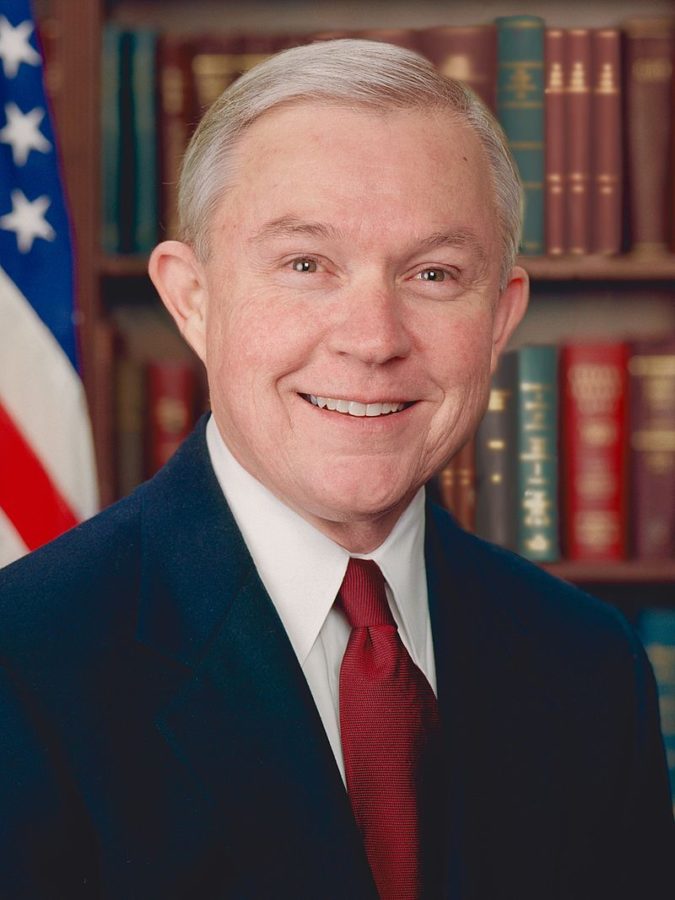Attorney General Jeff Sessions ousted, Whitaker assumes position
jeff sessions.jpg
November 7, 2018
Attorney General Jeff Sessions has been replaced by Matthew Whitaker, a native of Ankeny, Iowa, following Sessions resignation Wednesday.
Whitaker, Sessions’ former chief of staff, was critical of an investigation into Donald Trump by Special Counsel Bob Mueller, saying Mueller was “dangerously close to crossing” a red line in a 2017 CNN op-ed.
Assistant professor of political science David Andersen said Trump’s request for Sessions to resign was to further his control over the Mueller investigation.
“I don’t think there is any doubt whatsoever that Trump wants the Mueller investigation to be shut down and for no findings to ever be publicly released,” Andersen said.
Trump has been pushing for Sessions’ resignation since he recused himself from the Mueller probe after details were released of a meeting between Sessions and a Russian ambassador during the 2016 election.
While Sessions was pressured to resign for more than a year, his final resignation came just one day after the midterm election, which Andersen said was intentional.
“As soon as Sessions recused himself from the Mueller investigation, Trump made it known that he wanted Sessions to resign, and he was cautioned by others to not fire him so he allowed him to stay in the office until after the midterm election,” Andersen said. “As soon as he had the latitude to act, he looked to put in a new attorney general to do what he thinks an attorney general should do, which is protecting him.”
This protection could be, in part, supplied by Whitaker who could have the authority to limit the extent of the Mueller investigation.
Ashton Ayers, policy director for the Iowa State College Democrats, said he thinks Trump is looking for any way to put himself above the rule of law, and that Whitaker, who will take the position of acting Attorney General until President Donald Trump appoints a permanent replacement, is a “career politician who will do anything to protect the president.”
Ayers said there were a few Senators who actively faced Trump, but after the election Republicans would do “little more than token opposition to radical authoritarian decisions.” Instead, Ayers said people should call on House Democrats to craft policy to protect Mueller’s investigation from being limited.
“The Mueller investigation is in danger, and the president who has no respect for the law and thinks he is above it should be held accountable,” Ayers said.
The Mueller investigation has faced criticism by some Republicans who say it hasn’t turned up any results.
“The investigation has been going on for two years now and it seems like every two weeks in the news you hear ‘new information, new information’ and it always turns out to be a nothing sandwich,” said Jacob Minock, president of the Iowa State College Republicans.
Andersen disagreed, saying he doesn’t know about anything specifically related to Trump but that there has been nearly 30 people charged with various charges throughout the investigation. Many of these charges have garnered guilty pleas from the accused, but Minock said most of those have not been tied to Trump.
“An awful lot of those arrests are from completely unrelated things, like tax fraud from a decade and a half ago,” Minock said. “I think if you dig back far enough in any of these high profile type individuals you will find something. I think it was Trump that those things came to life as there would be no other reason for people to dig into their past.”
Regardless, the decision coming at the end of the midterm election was a good move politically, Andersen said.
As Republicans increased their control of the Senate, the likelihood of a force of Republicans opposing Trump has a much lower chance of happening.
“Trump did not want to bring this up before the midterms because he didn’t want to face hostility from Republicans across the party,” Andersen said. “He had been cautioned by several prominent Republicans in the Senate not to do this. I think he made a wise political decision to hold off until all of the votes have been cast.”

















